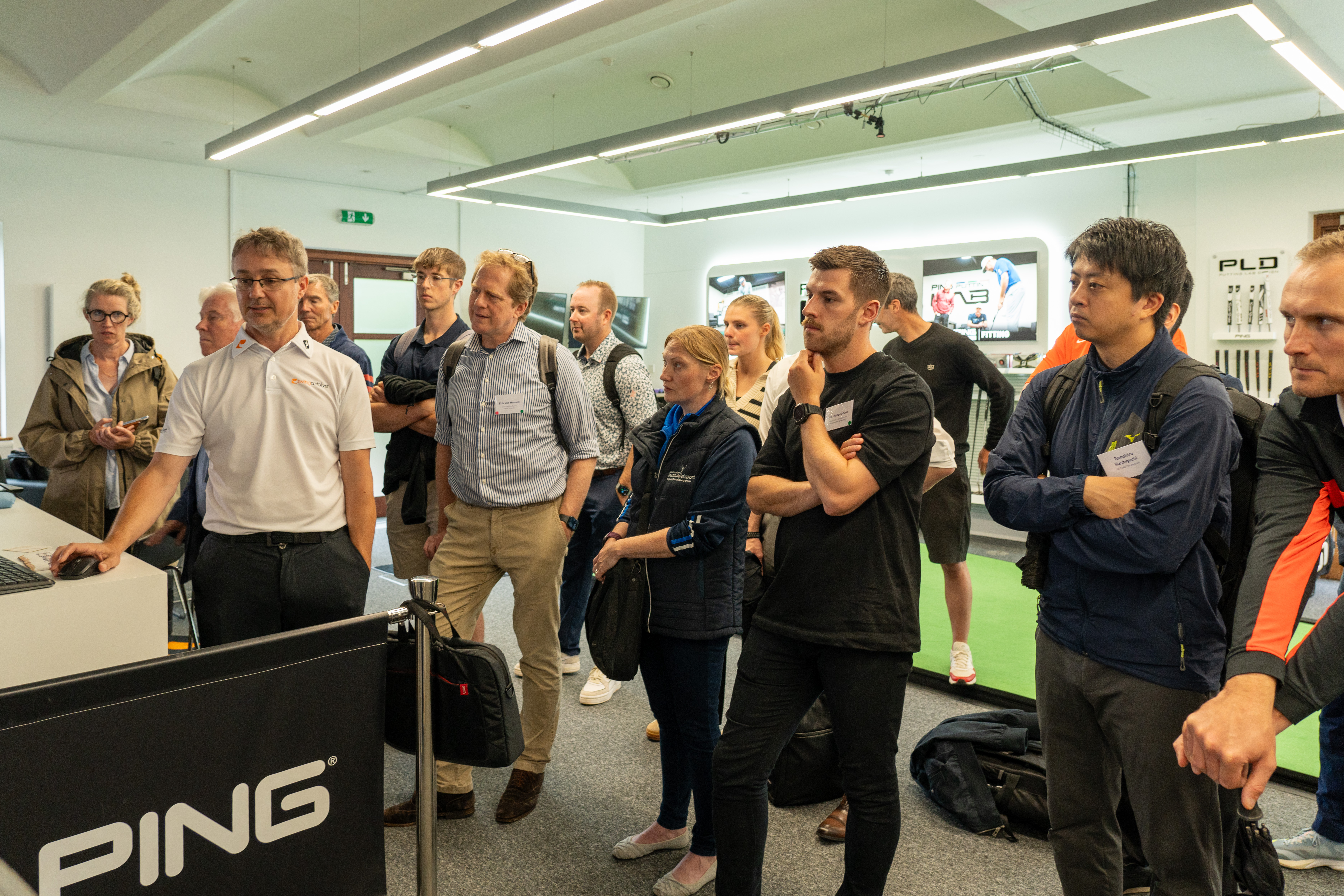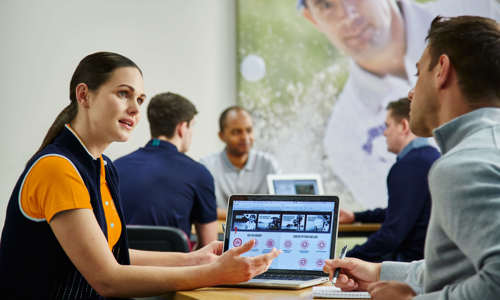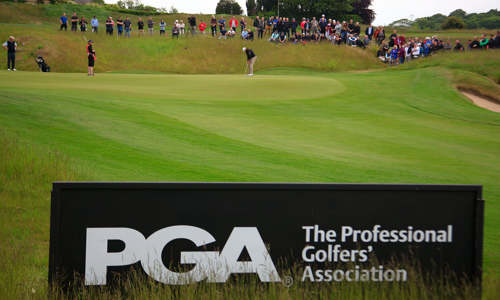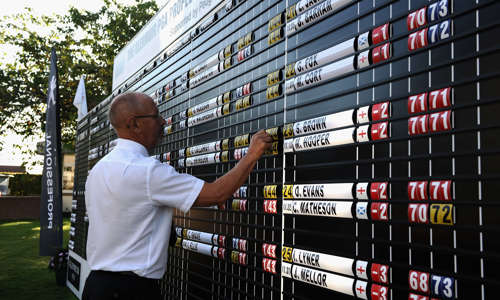The World Scientific Congress of Golf concluded the 3-day conference at The PGA National Training Academy, The Belfry, connecting PGA Members with industry leaders and researchers to discuss all things golf science.
The event was a great opportunity for those working in golf to gain more understanding around the latest research, new technologies and methods, the challenges they see, the needs and perspectives of those involved in the game and generally meet new people in the industry.
Attendees also enjoyed an array of panel discussions and workshops. Thursday was met with conversations with esteemed professionals to discuss topics surrounding women in golf and golf for the disabled.
Collectively, these conversations highlighted the importance of scientific research, physical training, and inclusivity in advancing the sport of golf.
Luke Robinson, PGA Lecturer in Golf Coaching, and PhD Student in Sport & Exercise Science at Middlesex University, presented on the Practices and Perceptions of S&C in Female Tour Professionals.
“I was delighted to see the interest and interaction at the conference surrounding female golf, not only from a high-performance point of view, but on a wider scale in terms of elevating female golf.”
“I think the main challenge with conferences is bridging the gap between research and applied work, but from having conversations both during and post conference, the feedback has been extremely positive, and it’s certainly an exciting time for golf moving forward”.
“My presentation was centred around research we carried out on practices and perceptions of S&C training in tour professionals. For example, misconceptions around replicating the golf swing in the gym environment, adding too much muscle mass, and fear of injury, however it is encouraging that education on best practice is now available at some tour events and through social media”.
Dr Karl Steptoe, a Chartered Sports and Exercise Psychologist led a workshop on session design for competitive performance, stressing the importance of the catchphrase “practice is pointless…without context”. Drawing from his team's research, he emphasised incorporating players' psychological experiences during important moments, aiming to enhance performance by working with negative thoughts.
Karl explains not only what he took from the conference but also what he hopes PGA Professionals were able to draw from his workshop too. “This was my first time at this conference, and it was really interesting.
“I think what’s great for me as a psychologist is getting other peoples views on psychology and not the psychologists. It’s great that biomechanics, coaches and sports scientists have all got involved.
“The psychological aspect is becoming more prevalent with PGA Pros, but It’s always been important. Formal training for a PGA Pro has increased over time. Even when I think back to coaching myself, it was always an important part of a player’s development. How they think, how they learn and that type of thing. There’s certainly been an increased interest from PGA Pros, we’ve just got to continue as psychologists to show how we can improve people.”
Dr Jack Wells, Senior Lecturer in Biomechanics and Strength and Conditioning discussed the use of force plates within golf and how these are used to assess golfers on the DP World Tour and players within the England Golf pathway.
“There’s some really good research that comes out of these conferences. There’s so many fresh ideas and it’s just great to chat with so many people and see what they’re up to.
“My sessions were quite practical which adds a good dynamic, but I wanted to provide something they could go away with. The feedback was really positive. “
Lewis Clarke, PGA Sports Science Lecturer, summarised the conference and explains why the 2026 event is a great chance to learn more about scientific research in golf, if you missed the chance this year.
“The great thing is the mix between applied practitioners and traditional academics doing the research. You get a great sense of both sides of the spectrum and some of the discussions that come up from those two components lead to some really good, applied practice going forward.
“The value for PGA Pros is that it often takes the research elements which often sit in a journal, on a bookshelf, and gives them chance to apply that practice. Because they happen every year, they can keep up with the latest knowledge with industry experts.
The 2026 WSGC is a great opportunity for PGA Pros to learn more about the latest research in golf science. “





































